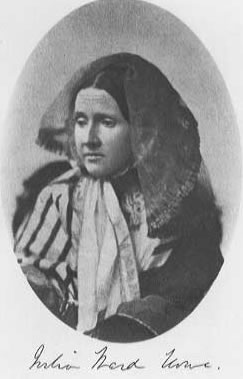 The resignation of British Prime Minister Tony Blair comes as no real surprise for those watching the soap opera of British politics over the past two years. Most thought it would come much sooner. This occasion provides an opportunity to assess his legacy over 20-plus years of public service, 10 of those as parliamentary leader.
The resignation of British Prime Minister Tony Blair comes as no real surprise for those watching the soap opera of British politics over the past two years. Most thought it would come much sooner. This occasion provides an opportunity to assess his legacy over 20-plus years of public service, 10 of those as parliamentary leader.
Tony Blair leaves behind a reputation for aggressive political reform within the United Kingdom and effective statesmanship abroad – two lessons the United States could learn from the former superpower as we move ahead into the 21st century.
Domestically, Blair forcefully confronted the false choice between economic growth and compassionate governance by incentivizing corporate innovation in the social sector and demanding greater accountability from state-run public services.
In doing so, he offered a model for those looking to bridge the gap between the public and private sectors, promoting partnership rather than enmity – beginning with the moral questions of “What must be done?” and ending with the market questions of “How can we do it best?”
Acting with courage and ethical clarity in an era of staggering global poverty and vast economic inequality, Blair believed the ancient wisdom that “to whom much is given, much is required.”
To this end, he fought to forgive outstanding loans to developing nations and increased his country’s commitments to foreign aid – investments that provided millions with education, food relief, clean drinking water, and access to basic medical care.
Addressing the ever-present threat of international terrorism, Blair shrewdly recognized it for what it is: a symptomatic birth pang of globalization – the inevitable consequence of the three colliding forces of unprecedented individual empowerment, unprecedented financial growth, and unprecedented economic disparity.
As such, Blair led with the conviction that the Western world will never find true security until the rest of the world is given a chance to transcend their current circumstances. In other words, while hopelessness breeds resentment and violence, opportunity secures hope for the future.
While it’s sad to see him go (and perhaps even sadder to see his legacy blemished by the unresolved conflict in Iraq), the gentleman he’s selected to fill his shoes, Chancellor of the Exchequer Gordon Brown, brings an uncommon blend of conscience, talent, and experience to the table.
For the sake of a world where only rare politicians continue to lead with “. . . a curious mix of moral cause and strategic interest” – words spoken by the outgoing prime minister at the World Economic Forum in Davos, Switzerland, earlier this year – we hope Brown fills them well.
In the end, Tony Blair exits with an important admonition, benediction, and commission:
In 20 years, or sooner, there will be new powers, new constellations of authority, with strong intentions and powerful means of advancing them. What values will govern that new world? Will they be global values, commonly shared, or will the world revert to spheres of interest, to competing power-plays in which the lesser or struggling nations are the victims?
If the narrative we believe in – a world of tolerance, freedom, openness and justice for all – is to be credible, it has to be effective. The best answer to fear is always hope. But hope requires belief. And belief comes only from words turned into deeds. So take these issues: Africa, climate change, world trade.
Imagine over the coming months the world agrees and over the coming years, it acts. Think how attractive our story of the world’s progress would be. Then think of failure and who will weep and who will rejoice. Think of all of this. Then let us agree.
Then let us act.
Thank you, Mr. Prime Minister.
Chris LaTondresse is the special assistant to the CEO at Sojourners/Call to Renewal.

